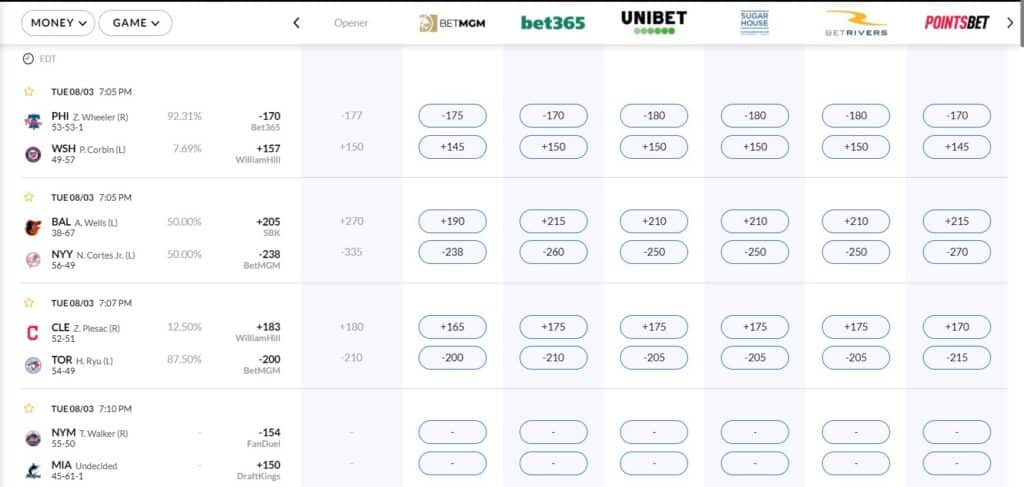Let’s talk about one of the most accepted, yet misunderstood aspects of wagering, betting with or against the public. Our focus is primarily MLB baseball public betting, but it easily bleeds into the other major sports. There is a common misconception that has been around for years, to the point it’s become a cliché.
For many years, there has been a herd mentality about how many and in some cases how most bettors make their selections. They’ve liked public teams, wanted to watch public teams to have action on what they are viewing and lost repeatedly. Others followed system plays like Oddstrader’s computer generated picks.
Pre-internet and in the many years that followed, there were countless “experts” who said, “Contrarian thinking was to go against the public.” There was and still is truth in that statement. The betting public more often than not does lose, and especially so in the long run.
And the fact of the matter is that almost all gamblers lose, just see the Nevada monthly reports on slot machines, they truly are – one-armed or now push-button bandits. However, like all things in life, there is evolution, with sports bettors becoming more informed and often smarter, and they generally make wiser decisions. That’s not true of everyone, just essentially the truth.
Today, those looking at Oddstrader or other top online betting sites can follow what percentage of those making MLB odds are backing a particular team. Some bettors that want to back that club will view that as a positive, that their peers are thinking the same as them and bet accordingly. For others studying the odds, seeing the public betting percentages at 80 percent or higher is a warning sign to back the other side. You can see examples of these betting trends next to the team names below.

That information is somewhat useful, but what helps those who follow those numbers more is not just the percentage, but the percentage of money wagered, which could tell an entirely or at the very least a more complete story.
Dismissing The MLB Public Betting Myth
In sports betting just like in life, there are no absolutes. And even when something works in making money for an extended period of time, eventually, that subsides or disappears into nearly a 50-50 proposition. As a whole, the betting public does lose, but not every time. Throughout any season sportsbooks will have losing months and it’s not just the sharps or wise guys that beat them, it’s the betting masses also.
There can be months where favorites have a more favorable schedule and they just clean up on weaker competition. Or teams with poor pitching staff face each other and clubs can put together a string of OVER’s and the public is backing them all along the way.
With baseball compared to football or basketball, where point spreads can split more action compared to money lines, where you just pick the winner, the sportsbooks’ only defense is raising the money line in a true Win/Lose scenario. Always betting with or against the public is a losing proposition when reviewing the numbers at Oddstrader or other sites. Instead, be more nuanced.
Public Betting Percentage Betting Patterns
One lesson many don’t learn is the betting public has little influence on those setting the line or making adjustments. Unless there is an inordinate amount of cash on one team from the betting public, seldom will a line move or if it does, the impact is mostly inconsequential.
The public could be on a team at 90%, with $12,000 on Team A and $1,000 on Team B. Then, a known sharp plunks down 1K on either team and an MLB money line could move 10 to 15 cents because this wise guy knows something the oddsmaker might have missed. You as the bettor would have no knowledge of this.
Following public betting trends, line movement and knowing the teams will increase your knowledge of the sport and you will develop your own edges that can give you advantages in placing your bets. That’s why tracking numbers is so important.
You can destroy preconceived notions and find unexpected edges that might only apply to that season, yet, are producing winners at a high rate. Is this time-consuming? Indeed. At this point you have to ask yourself; do you want an edge or be a gambler? (There is a difference.)
Should You Follow Public Betting Trends?
As you can see above, blindly following the public bet is not a long-term winning betting strategy. Public bettors are often swayed by emotion, not data-driven analysis.
However, you should use public betting as a tool. These percentages can help you identify potential opportunities and inform your betting decisions. If you don’t use online computer picks, then your own research is your greatest ally.









